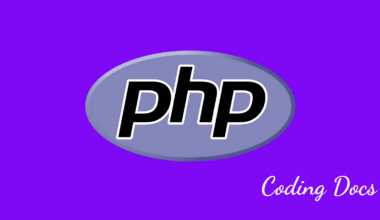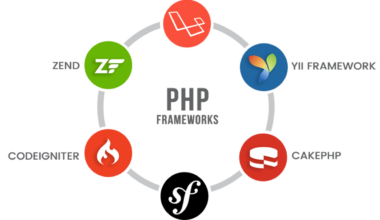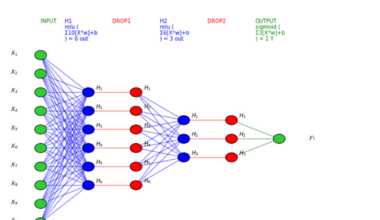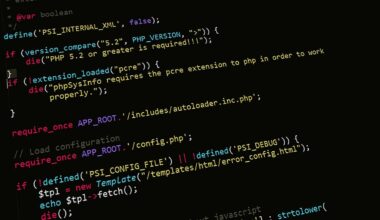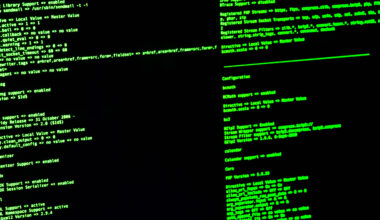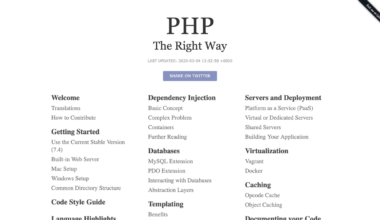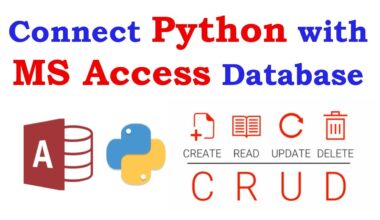Introduction to PHP Regular Expressions
As a PHP developer, you might have come across situations where you need to process text data in a specific pattern. This is where regular expressions come into play. A regular expression is a sequence of characters that define a search pattern. In PHP, regular expressions are implemented using the preg family of functions.
Regular expressions can be used for a variety of tasks, such as:
- Validating user input
- Extracting specific information from a string
- Replacing text in a string
- Splitting a string into an array
The syntax of regular expressions can be intimidating at first, but it’s not as complicated as it seems. Let’s take a look at the basic syntax of regular expressions in PHP.
Regular expressions are enclosed in forward slashes (/pattern/), and can contain various characters and modifiers. Here are some basic characters used in regular expressions:
| Character | Description |
|---|---|
| . | Matches any character except newline |
| \d | Matches any digit character |
| \w | Matches any word character (letter, digit, underscore) |
| \s | Matches any whitespace character |
| [] | Matches any character inside the brackets |
Modifiers can be added to regular expressions to specify different options. Here are some basic modifiers used in regular expressions:
| Modifier | Description |
|---|---|
| i | Case-insensitive matching |
| m | Multi-line matching |
| g | Global matching (matches all occurrences) |
Syntax of PHP Regular Expressions
Now that we have a basic understanding of what regular expressions are, let’s dive into the syntax of regular expressions in PHP. As mentioned earlier, regular expressions are enclosed in forward slashes (/pattern/), and can contain various characters and modifiers.
To match a specific character in a string, we use that character in the regular expression. For example, to match the letter “a” in a string, we simply add the character “a” to the regular expression. To match multiple characters, we can use a character class. A character class is enclosed in brackets and matches any character inside the brackets. For example, the regular expression /[aeiou]/ matches any vowel in a string.
We can also use special characters in regular expressions to match specific types of characters. The dot (.) character matches any character except newline. The \d character matches any digit character, while \w matches any word character (letter, digit, underscore), and \s matches any whitespace character. To match any character, we can use the dot (.) character with the modifier s.
Repetition is a common feature in regular expressions. We can specify how many times a character or group of characters should be repeated using quantifiers. Here are some commonly used quantifiers:
| Quantifier | Description |
|---|---|
| * | Matches zero or more occurrences |
| + | Matches one or more occurrences |
| ? | Matches zero or one occurrence |
| {n} | Matches exactly n occurrences |
| {n,} | Matches n or more occurrences |
| {n,m} | Matches at least n and at most m occurrences |
In addition to the basic
Commonly Used PHP Regular Expression Functions
PHP provides a number of functions to work with regular expressions. Here are some commonly used functions:
preg_match()
– This function searches a string for a pattern and returns true if the pattern is found, and false otherwise. It takes two arguments – the regular expression pattern and the string to search.
if (preg_match('/hello/', 'hello world')) {
echo 'Pattern found!';
} else {
echo 'Pattern not found.';
}
preg_replace()
– This function searches a string for a pattern and replaces all occurrences of the pattern with a specified string. It takes three arguments – the regular expression pattern, the replacement string, and the string to search.
echo preg_replace('/world/', 'everyone', 'hello world');
preg_split()
– This function splits a string into an array based on a specified regular expression pattern. It takes two arguments – the regular expression pattern and the string to split.
print_r(preg_split('/\s+/', 'hello world'));
preg_match_all()
– This function searches a string for all occurrences of a pattern and returns the matches as an array. It takes two arguments – the regular expression pattern and the string to search.
preg_match_all('/\d+/', 'I have 10 apples and 20 oranges', $matches);
print_r($matches);
preg_quote()
– This function escapes any special characters in a string so that it can be used as a literal string in a regular expression. It takes one argument – the string to escape.
echo preg_quote('hello.world');
By using these functions, we can easily manipulate and extract data from strings using regular expressions in PHP. With regular expressions, the possibilities are endless – from validating user input to parsing complex data structures. Regular expressions are an essential tool for any PHP developer’s toolkit.
In the next section, we will discuss some advanced techniques for using regular expressions in PHP.
Advanced Techniques for PHP Regular Expressions
Regular expressions in PHP offer a wide range of features beyond the basic syntax and functions. Here are some advanced techniques for using regular expressions in PHP:
Lookaround Assertions:
Lookaround assertions are used to match a pattern only if it is followed or preceded by another pattern. There are two types of lookaround assertions in regular expressions – positive lookaround and negative lookaround. Positive lookaround matches the pattern if it is followed or preceded by another pattern, while negative lookaround matches the pattern if it is not followed or preceded by another pattern. Here are some examples:
// Positive lookbehind - matches "world" only if preceded by "hello"
preg_match('/(?<=hello)world/', 'hello world', $matches);
print_r($matches); // Output: Array ( [0] => world )
// Negative lookahead - matches "world" only if not followed by "wide"
preg_match('/world(?!wide)/', 'hello world', $matches);
print_r($matches); // Output: Array ( [0] => world )
Named Capturing Groups:
Capturing groups are used to capture a specific part of a pattern for later use. In PHP, we can use named capturing groups to make our regular expressions more readable and maintainable. To use named capturing groups, we enclose the pattern in parentheses and give it a name using the syntax (?
pattern). Here’s an example:
// Matches a date in the format "YYYY-MM-DD" and captures the year, month, and day
preg_match('/^(?\d{4})-(?\d{2})-(?\d{2})$/', '2022-02-26', $matches);
print_r($matches); // Output: Array ( [0] => 2022-02-26 [year] => 2022 [1] => 2022 [month] => 02 [2] => 02 [day] => 26 [3] => 26 )
Recursive Patterns:
Recursive patterns allow us to match nested patterns of arbitrary depth. This is useful for parsing complex data structures such as HTML or XML. In PHP, we can use the syntax (?R) to match the entire regular expression
Final Thought: The Power of PHP Regular Expressions
Regular expressions are a powerful tool for manipulating and processing text data in PHP. With regular expressions, you can easily validate user input, extract specific information from a string, replace text, split a string into an array, and more. By mastering the syntax and functions of regular expressions, you can take your PHP development skills to the next level.
One of the key benefits of regular expressions is their versatility. Regular expressions can be used for a wide range of tasks, from simple pattern matching to complex data parsing. Whether you’re working with simple strings or complex data structures, regular expressions can help you quickly and efficiently process and manipulate your data.
Another major benefit of regular expressions is their flexibility. Regular expressions can be customized to meet your specific needs, whether you’re looking to match a specific pattern or perform a complex search and replace operation. With regular expressions, you have complete control over how your data is processed and manipulated.
Overall, regular expressions are an essential tool for any PHP developer. By learning how to use regular expressions effectively, you can streamline your development workflow, improve your code quality, and take your PHP skills to the next level. So if you haven’t already, take the time to explore the power of regular expressions in PHP – you won’t regret it!











